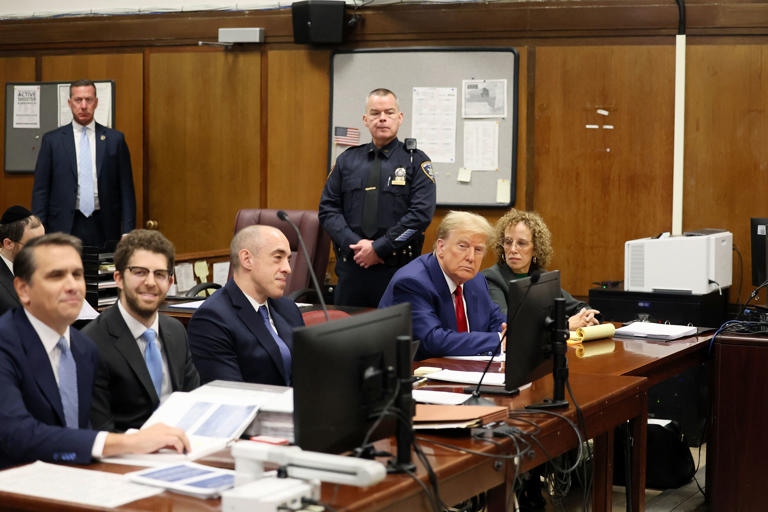As former President Donald Trump emerges as a frontrunner for the GOP nomination in the upcoming presidential race, his candidacy is shrouded in legal uncertainty due to ongoing felony charges against him.
Facing four separate criminal indictments across three states and Washington, D.C., Trump’s potential presidency has ignited debates over constitutional limitations and political norms.
Legal experts assert that despite facing felony charges, Trump could technically serve as commander in chief, as the U.S. Constitution does not explicitly prohibit it.
The Constitution outlines minimal requirements for the presidency, including age, citizenship, and residency, without addressing criminal convictions.
The charges against Trump range from falsifying business records to allegedly attempting to overturn the results of the 2020 election. Despite pleading not guilty to all 88 counts, the legal battles raise questions about the intersection of criminal law and presidential eligibility.
While some states restrict felons from holding office or voting, federal law does not impose such limitations on presidential candidates.
Political analysts note that Trump’s resilience within the Republican Party and consistent public support complicate efforts to challenge his candidacy.
Recent legal battles, including a Colorado Supreme Court ruling seeking to bar him from the state’s primary ballot, highlight the complexities of navigating legal and constitutional constraints.
Calls for broader constitutional amendments to address the issue of felons running for the presidency face significant hurdles, requiring bipartisan support in a polarized political climate. Instead, experts emphasize the importance of reaffirming democratic principles by scrutinizing candidates’ legal backgrounds and adherence to the rule of law.



